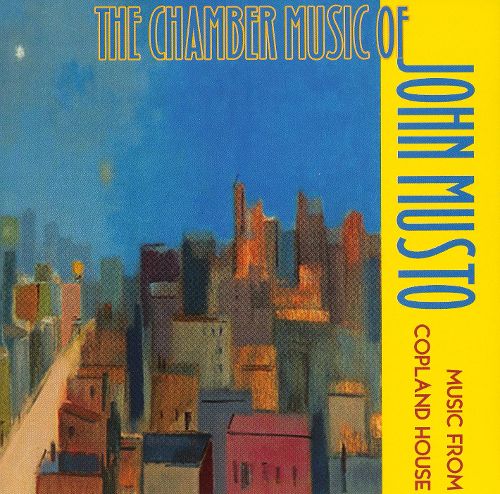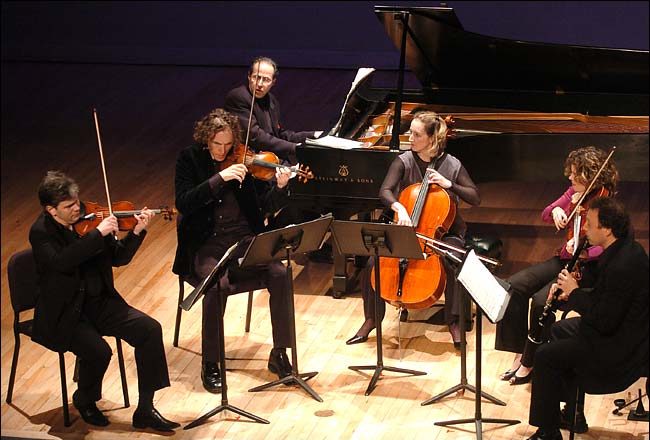The Chamber Music of John Musto – Music From Copland House

The Chamber Music of John Musto-Music from Capland House. Nicholas Kitchen, violin; Wilhelmina Smith, cello; Derek Bermel, clarinet; Michael Boriskin, piano; Paul Lustig Dunkel, flute. Guest artists: Jesse Mills, violin; Daniella Farina and Leslie Tomkins, violas; Thomas Kraines and James Wilson, cellos; James Baker, percussion. (KOCH 7690) Music from Copland House, a mixed string and wind ensemble, takes its name from Aaron Copland’s New York home, now a center for American music, where this chamber ensemble is in residence. Its members, all acclaimed soloists and chamber musicians, often invite distinguished guests. The resulting mix offers a wide range of instrumental combinations. Continuing Copland’s championing of American composers, the ensemble has commissioned, performed, and recorded many new works. This disc features three world-premiere recordings.
The music on this disc is composed by John Musto (b. 1954), a brilliant, versatile pianist who considers himself a “self-taught” composer, having “learned to write music by playing it.” He has written prolifically for piano and for voice; the singing quality of his chamber music clearly shows the vocal influence. These works, though quite different from one another, share two important elements: contrast and color (as well as a tendency to end movements with a crash or a whisper). Tempo, rhythm, texture, dynamics, and character change constantly, often suddenly – the timbre of every instrument is fully used, individually and in combination. In fact, it sometimes seems as if Musto had decided not to leave a single sound effect unexploited, and the players abet him with gleeful enjoyment.
In the Piano Trio (1998), banging chords alternate with soaring melodies, big climaxes with fade-outs. High, delicate piano tinkling combines with low-singing strings and piano staccato with pizzicato, creating unusual, piquant textures. The performance is excellent.
The Sextet (2000) for string quartet, clarinet, and piano was inspired by clarinetist David Krakauer, a leading exponent of both classical and klezmer styles. In his prominent part, clarinetist Derek Bermel, himself a composer, displays a natural affinity for Jewish folk songs and dances as well as dazzling brilliance in several improvised cadenzas.
The Divertimento (1999), scored for flute, clarinet, viola, cello, piano, and percussion, offers every player a chance to shine. Among the members, violinist Nicholas Kitchen (leader of the Borromeo Quartet), cellist Wilhelmina Smith of the Mannes Trio, flutist and conductor Paul Lustig Dunkel, and pianist Michael Boriskin (who also wrote the program notes) stand out for their virtuosity.
-E. E.


